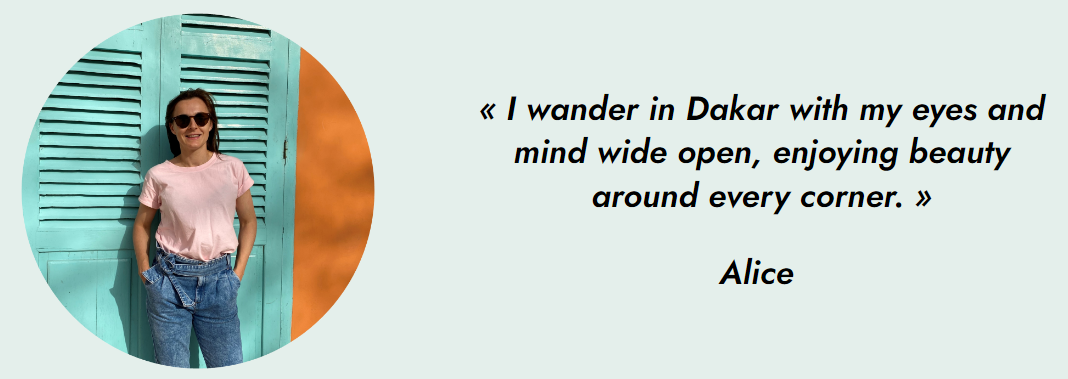Lire l’article en Français
The first time I encountered Bachita was at Maison Aïssa Dione during the « Catching the Invisible » exhibition. You can’t miss Bachita! She exudes a vibrant energy, effortlessly switching between perfect English and melodic French, with an intriguing je ne sais quoi. She describes herself as “both an open book and a great mystery at the same time.” One thing is certain: she leaves a lasting impression on everyone she meets. After our initial encounter, I tried—and loved—the soaps from her natural cosmetics brand. Curious about her background, I decided to ask her directly. We met on a Tuesday morning at Maison Hapsatou Sy in Dakar, where she displays her products. Over the course of an hour, we talked about entrepreneurship, cosmetics, and of course about Made in Africa.
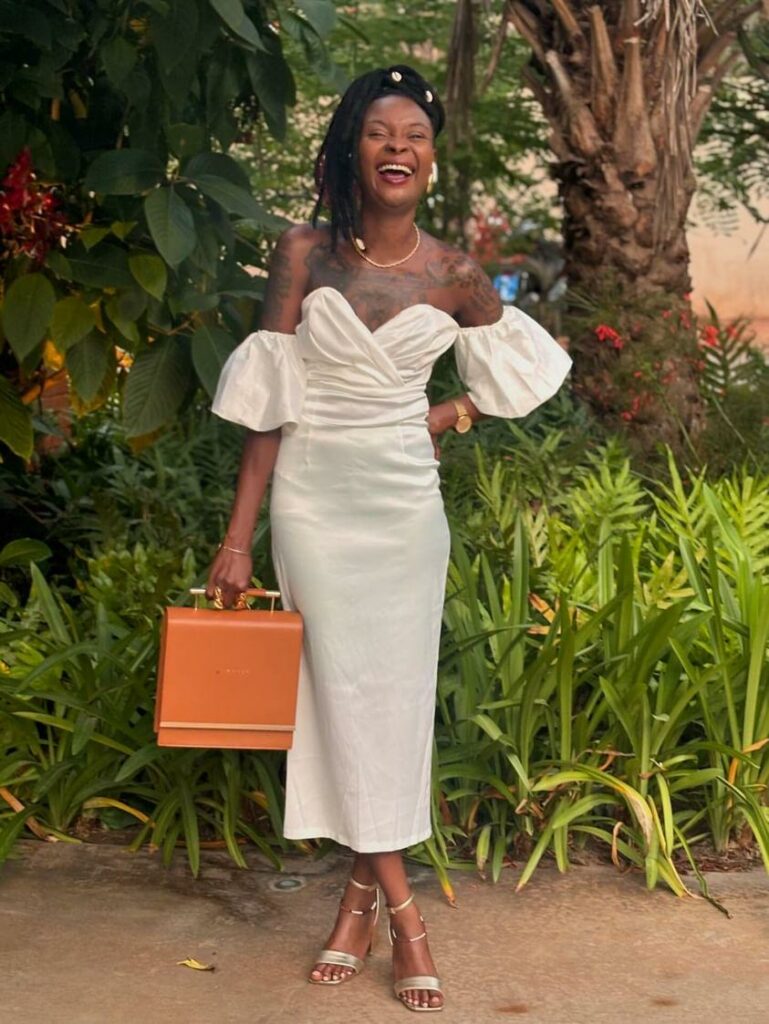
Can you introduce yourself? What’s your background?
I was born in Lomé, Togo. My father is Togolese, and my mother is from Benin. I lived in Lomé until I was 14, then moved to Richmond, Virginia, in the United States. I finished high school there and went on to university. My father encouraged me to major in Business, but I struggled to connect with it. I was drawn to science—subjects like biology and chemistry—because I wanted to engage with the world in a meaningful way. I chose to specialize in chemistry, convinced that it’s a holistic discipline: biology connects us to one another, while chemistry connects us to the world. After all, it’s often said that human relationships are all about chemistry!
When did you create B-Natural? What inspired you to become an entrepreneur?
When I started university in 2010, I searched for a student job but couldn’t find one on campus. One of my friend’s mothers owned a hair salon, so I asked if I could work there on weekends. I began as an assistant, washing hair for $5 per client. I wanted to contribute more, not just be the person who shampooed hair. I quickly noticed that hairdressers were using products with ingredients they didn’t fully understand—those chemical lists on labels can be quite cryptic for the uninitiated. So, I decided to test the concepts I was learning in chemistry by experimenting with making shampoo, conditioner, and oil. After testing them on my own hair, I introduced them to the salon. The natural, customizable products were a hit with customers. Seeing my passion for production and sharing knowledge, my boss offered to give my products a spot on the salon shelves. I seized the opportunity and started B-Natural alongside my studies and student job.
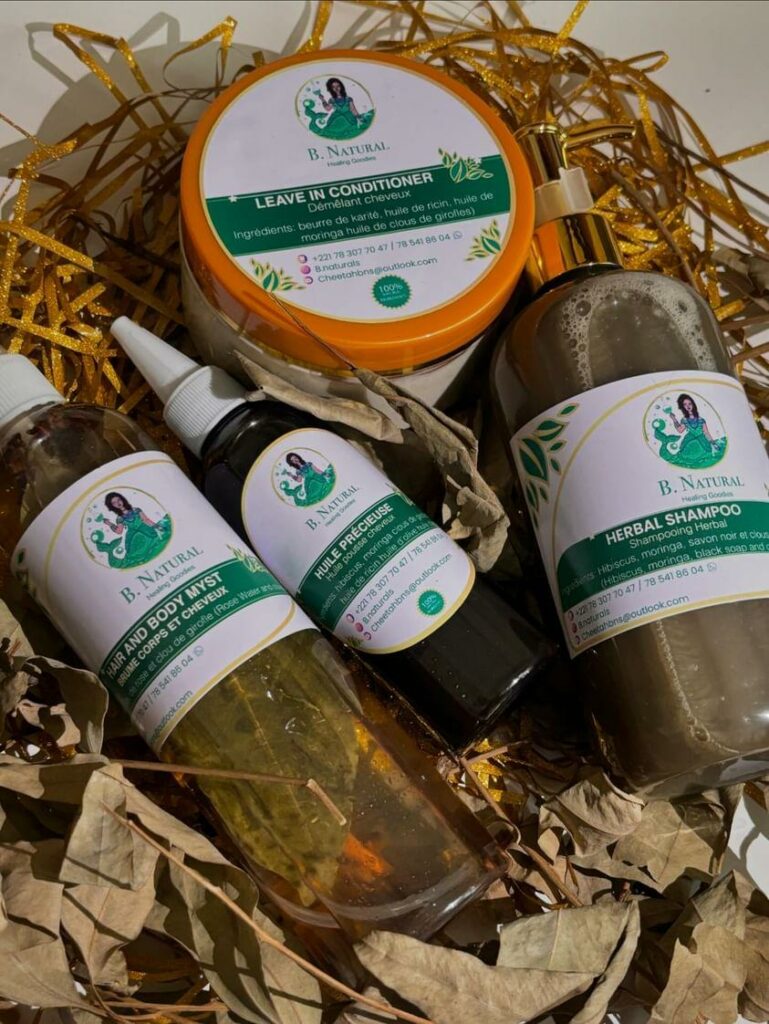
Photo credit: Bachita.
What is B-Natural’s mission?
Initially, I named my brand “Bachh Natural”—’Bach’ as in Bachita, and as ‘batch’ in English. It’s my legacy, something I’m creating for myself, my daughters, and future grandchildren. This year, I decided to rename it B-Natural, to emphasize the natural approach even more. All my products are made with simple, natural ingredients. For example, my soaps contain just three components: lye, oil, and spices that add color, scent, and their inherent benefits. The beauty of my products is that you could eat each raw ingredient before processing!
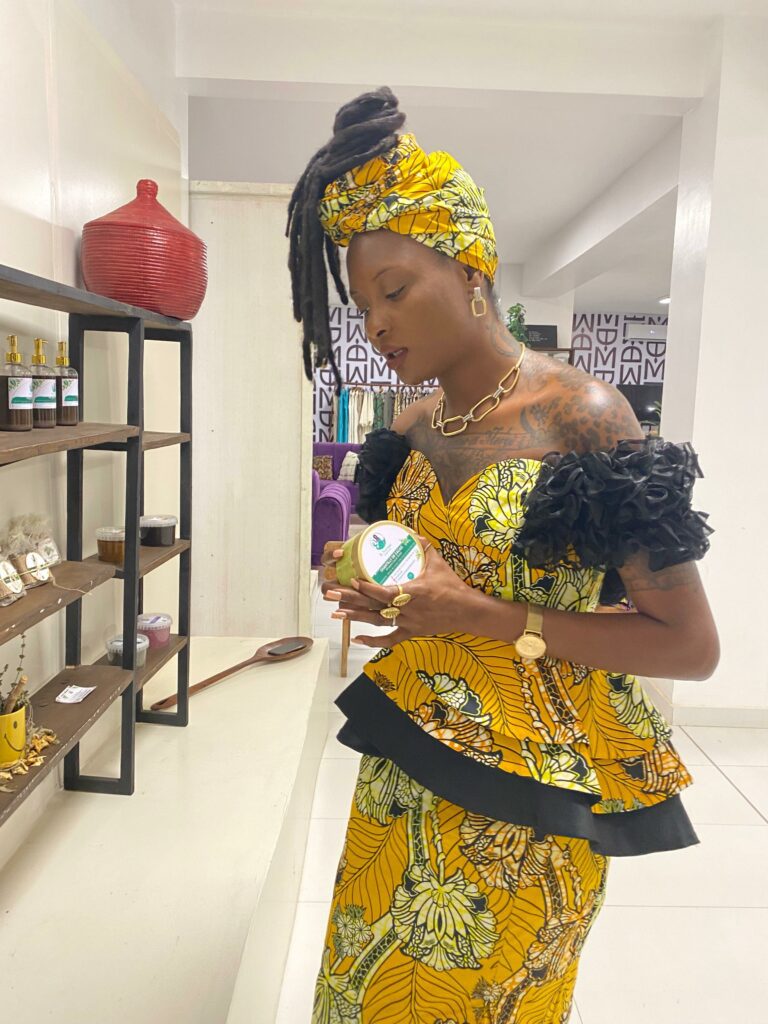
Why did you decide to move to Senegal?
When I chose to major in chemistry, I had a feeling that I would learn the theory in the USA but would return home to put it into practice. After my studies, I returned to Lomé but didn’t have the courage to stay. I moved back to the USA, started a family with my Senegalese partner, and eventually we settled in Dakar after our daughter was born. Although our paths later diverged, I chose to stay in Dakar. At the time, I was working full-time at the head office of a company specializing in airport security, while still developing my brand on the side.
Have you encountered any obstacles on your entrepreneurial journey?
Balancing a full-time job while developing my brand was a real challenge. In December 2023, my position was eliminated. It was tough because I had invested so much in that job, and I felt betrayed. Isn’t a permanent job what most employees strive for? However, this setback allowed me to reassess my abilities. I’m passionate, hardworking, and I know what I bring to the table. So, why not channel all that energy into my brand? I took the leap and decided to give 100% to B-Natural. In just six months, I achieved more than I had in the previous ten years.
Do you think there are challenges for women entrepreneurs in Senegal?
As a woman, it’s unfortunate to say, but we are often placed second, no matter where we are in the world. Whether in Senegal, France, or the United States, people don’t always take us as seriously as they do men when it comes to business. We must stand firm, defend our vision, and make sure people understand it.
However, in Senegal, there’s a vibrant market for women’s entrepreneurship, which I truly appreciate. I expected more complexity, but honestly, I haven’t encountered significant barriers so far. I see many women daring to become entrepreneurs, with men supporting them. There’s also a network of NGOs and companies here that back women in business. Maison Hapsatou Sy, for example, allows young brands like mine to showcase their products.
What advice would you give to a woman who wants to start her own business, in Senegal or elsewhere?
Entrepreneurship is a mindset that anyone can develop. The key is to choose a path that resonates with you and to never give up! Perseverance, self-belief, and faith in your work make all the difference. Having a clear goal is essential, as is offering good, effective products that meet a real need.
Do you manufacture B-Natural products yourself?
Yes, I handle everything from sourcing to production. Initially, I used a ready-made soap base, which limited my creativity since I couldn’t add a wide variety of natural ingredients. I was hesitant to make soap from scratch because of the risks involved with using soda ash—a material my chemistry teachers had warned us about. But one day, I decided to take the plunge. I sketched out a formula, and to my surprise, the first batch was a success! That’s the formula I’ve been using ever since, and I enjoy experimenting with new soap recipes. It’s fascinating how we often limit ourselves, and how important it is to challenge our doubts and fears.
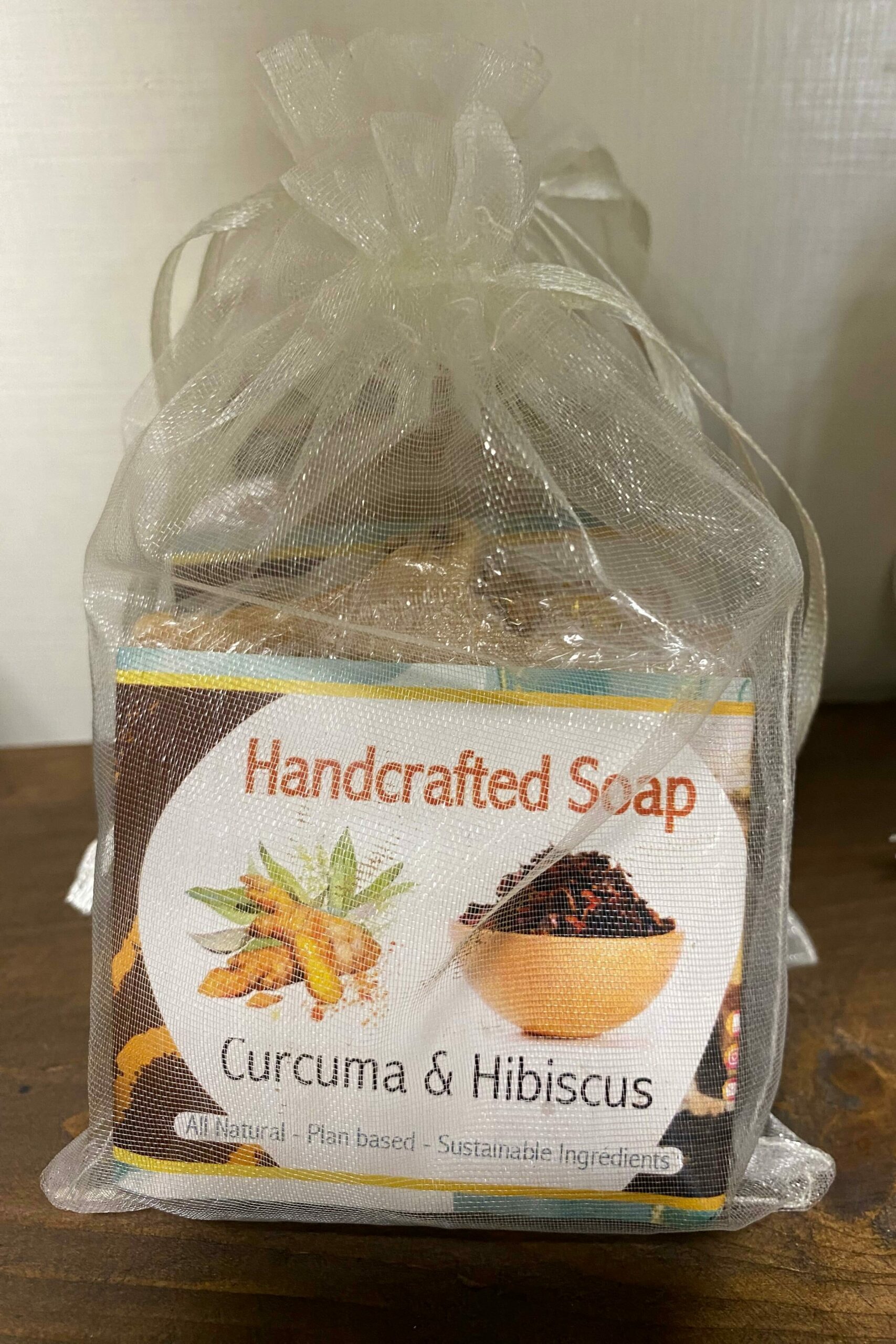
How do you source your raw materials?
I prioritize local and seasonal raw materials. From the start, I was committed to using ingredients from Africa, partly because I wanted to keep a piece of Africa with me. When I lived in Virginia, sourcing was a challenge, and I often relied on travelers (GPs*) to bring in shea butter or cocoa butter from Togo or Ghana. But this came at a cost, and I had to constantly balance profitability with accessibility for my customers. Now that I’m in Senegal, sourcing is easier. While cocoa butter can be scarce, shea butter is abundant. However, because it’s so common, people often overlook its value. My job is to educate consumers about the benefits of shea butter and the synergies it creates with the other ingredients I use.
*GP: Gratuité Partielle, refers to travelers who offer to carry goods in their baggage when flying, for a fee per kg.
How does Dakar nurture your creativity?
Dakar has a very interesting way of making you creative. Even if you are not a creative person, when you come to Dakar you have no choice to become creative! The city itself is inspiring—its beaches, monuments, and the history of the place compel you to create. Sometimes, I leave home just to take the boat to Gorée Island. Viewing Dakar from across the water helps me put things into perspective. I used to fear water and boats, but a friend encouraged me to conquer my fear and visit Gorée. The beauty of the island amazed me, and I realized how much we limit ourselves. I admire the resourcefulness of the people of Dakar. Whether it’s women, men, or even children, you see people working tirelessly from morning to night. The entrepreneurial spirit here is truly inspiring.
Is there anything else you appreciate about Senegal?
Dakar is rich in resources. My home country, Togo, is smaller, and sourcing can be more challenging there. For example, finding attractive containers for my products in Lomé is difficult, and packaging plays a crucial role in cosmetics. In Senegal, the import/export market is more developed, making it easier to find packaging. While sourcing raw materials is easier in Togo, finding finished products is simpler in Senegal. Each place has its advantages and challenges. The diversity in Dakar also enriches the customer base, creating a vibrant marketplace. This mix of cultures, businesses, and mindsets is what makes Senegal so special. If you keep an open mind, there’s always something to learn from others.
You use moringa in your products. Is this a plant also used in Togo?
Yes, moringa is also grown in Togo, and my mother-in-law introduced me to its benefits. But it was in Senegal that I truly understood the value of moringa. It’s widely used in traditional medicine here to treat conditions like diabetes and high blood pressure. In cosmetics, it’s valued for its anti-aging properties. The Senegalese even call it “Neberday,” a contraction of “Never Die” in English!
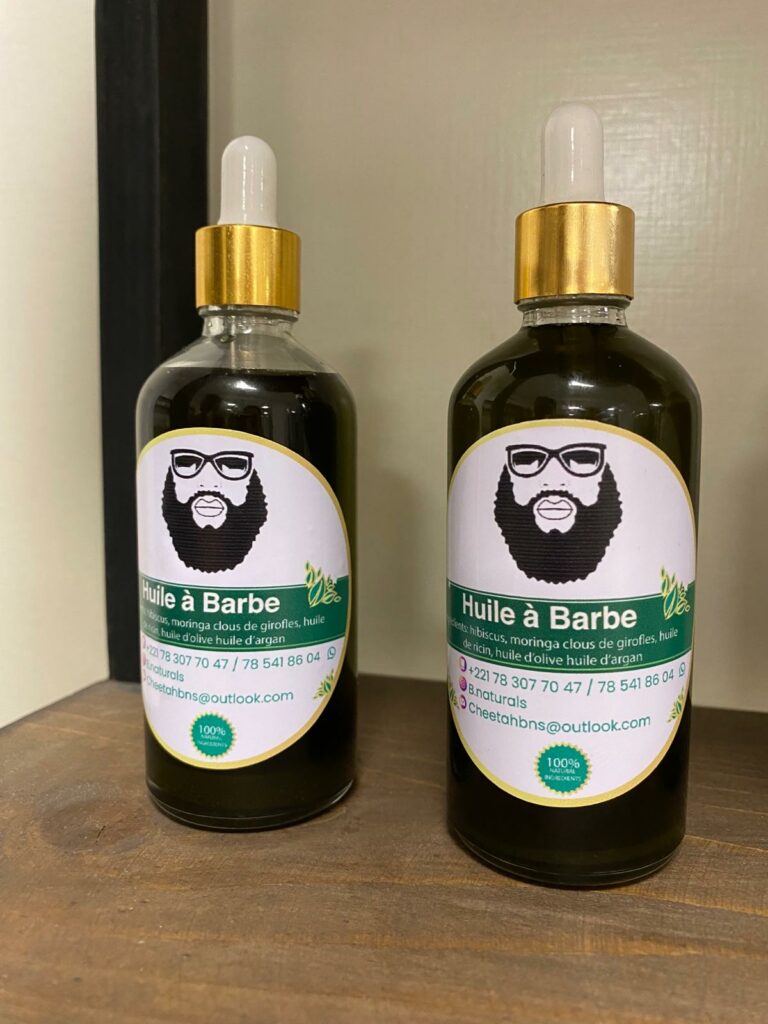
What are the next steps for B-Natural?
I’ve started launching my website, so soon people will be able to buy my products online in Senegal. Currently, I distribute in Senegal and France, but I’d like to expand to the USA, where I have a loyal customer base. Ultimately, I want to export to many countries because I believe that there are nature lovers worldwide who need natural products!
It seems that the cost of exporting products is a challenge for many entrepreneurs here ?
Yes, shipping costs can often exceed the price of the product itself! Shipping is a major challenge and one of the limitations of entrepreneurship in Africa. It can be discouraging for consumers when they compare prices with products from other regions.
Is there a trend in West Africa to support Made in Africa?
There is a shift in mindset happening. For a long time, people in West Africa, including Togo and Senegal, have relied on unsold products from the West—items that didn’t succeed in European or Asian markets. Many still believe that imported cosmetics are superior to locally made ones, partly because they don’t read product labels carefully. As a result, some consumers continue to order products from abroad instead of supporting local brands.
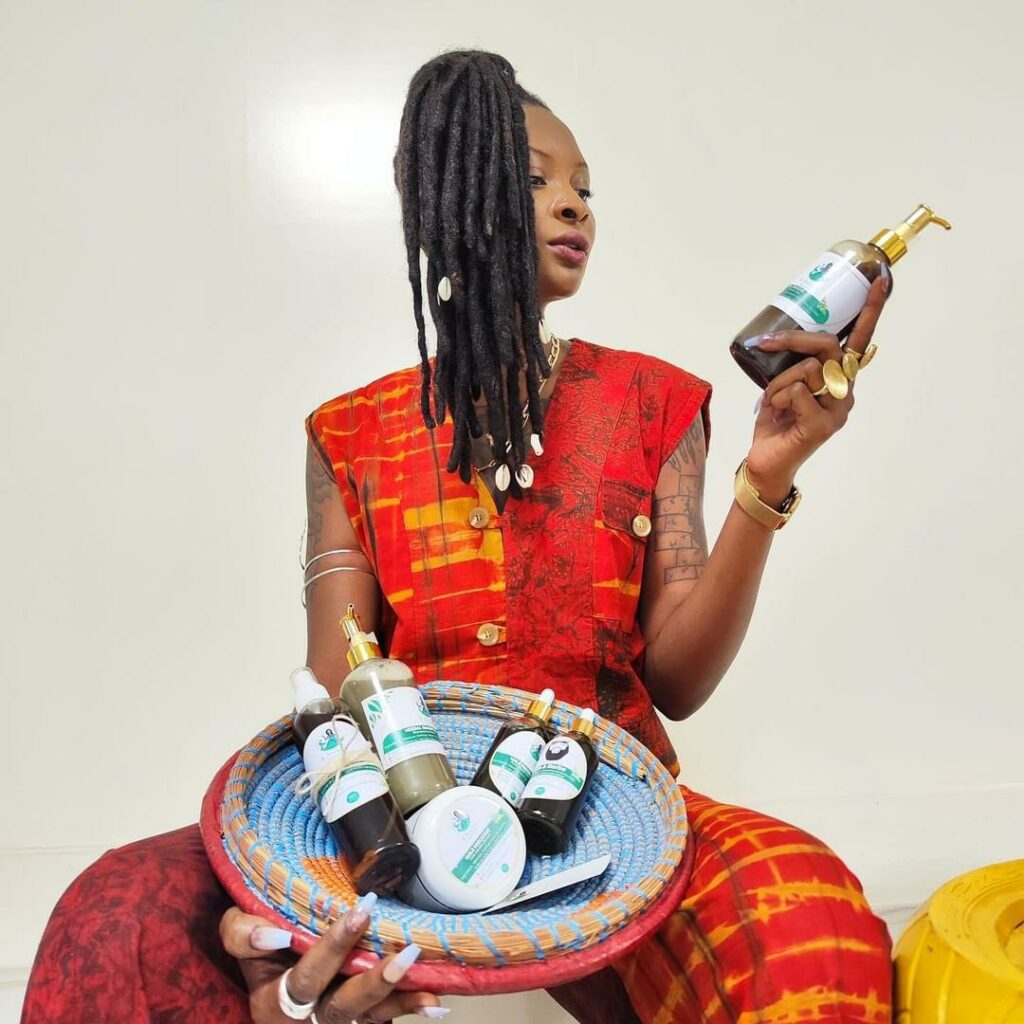
Is it also a generational issue?
I believe our generation is more aware of the value of Made in Africa and natural products compared to our parents. And I’m confident that our children will do even better. It’s also a matter of education—there’s a widespread belief that imported products are better, but our raw materials are of the highest quality. However, I see that people are starting to return to natural products.
What final message would you like to share with our readers?
I’m convinced that Africa will become “the place to be” in the coming years. We have everything here: the resources, the raw materials. What we need is to transform them locally. There are wonders in Africa that the world needs to discover!
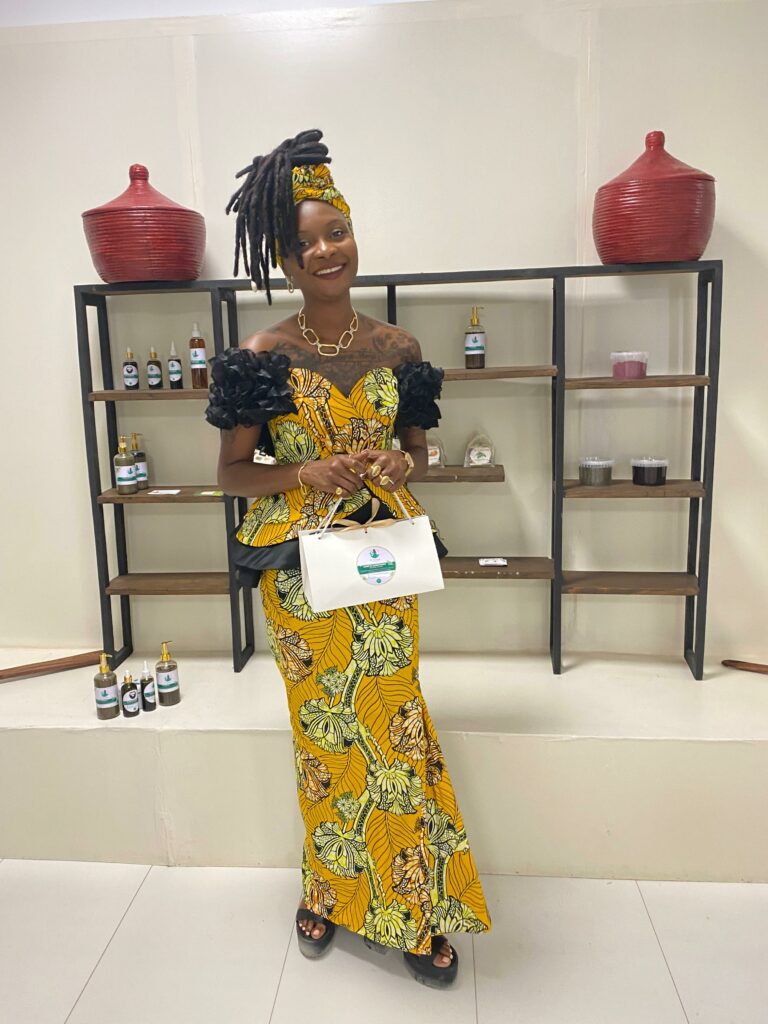
Thank you very much, Bachita, for your time and this enriching discussion!
To discover B-Natural products, feel free to check out their Instagram account.
In Dakar, you can find B-Natural products at maison Hapsatou Sy or order them online.


